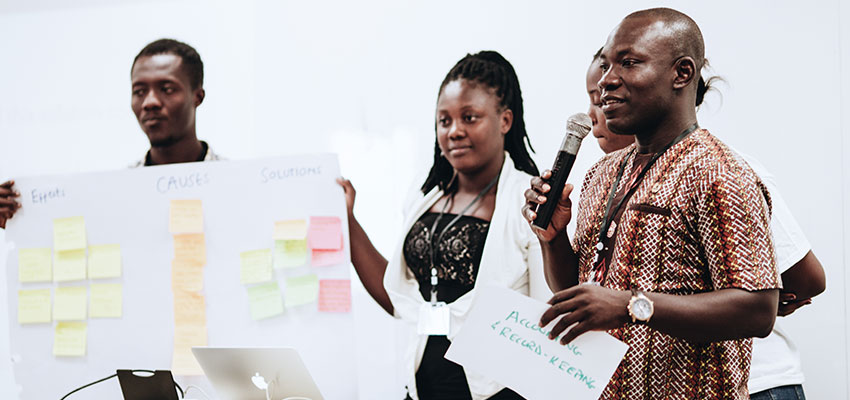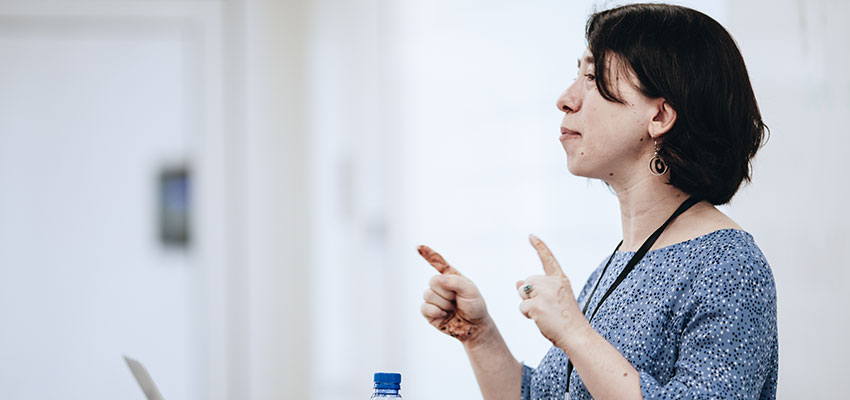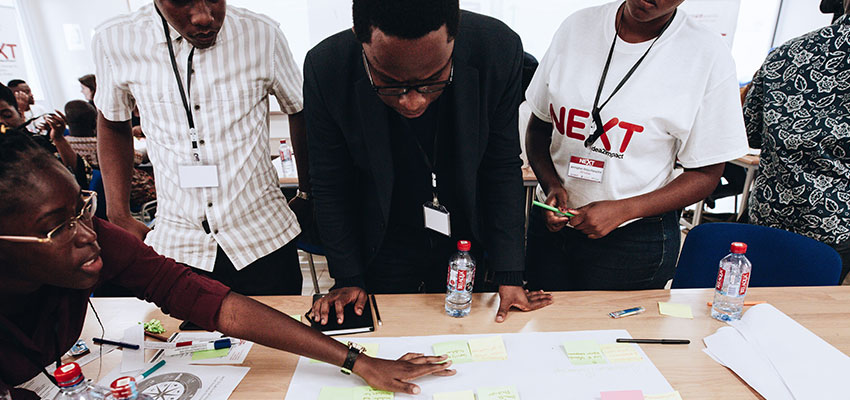
New Entrepreneurs Xchange for Transformation: Idea to Impact (NEXTi2i) hosted its first annual Ecosystem Convening on June 6th, 2019 at Ashesi University, engaging leaders from various stakeholder groups in the entrepreneurship ecosystem in Ghana around the theme of “Unlocking the Potential of the Hybrid Entrepreneur.” Academics, entrepreneurs, NGOs, investors, civil society organizations, students, hubs and incubator managers, and independent researchers all came together to dive deep into problems and solutions facing hybrid entrepreneurs, or entrepreneurs committed to “doing good while doing well,” in the hopes of changing the face of the Ghanaian entrepreneurial ecosystem.
The convening was led by Molly Wenig Rubenstein, MIT D-Lab’s Innovation Ecosystems Manager, who guided participants through a full day of team exercises designed to build their sense of shared connection and activate their creative capacity towards overcoming some of the key obstacles facing hybrid entrepreneurs in Ghana.
Building Empathy
Ms. Rubenstein launched the ecosystem convening by asking participants to spend some time imagining themselves in each others’ roles, to help build mutual understanding between the diverse stakeholders engaged in and affected by these issues.

Idenitifying Barriers
Teams then identified key challenges entrepreneurs face in Ghana, highlighting ones they felt could be solved by the participants gathered in the room. Many emphasized the lack of knowledge or effective training in areas like business model development, impact measurement, and bookkeeping and accounting, while others called out issues around affordable access to necessary support like legal services and co-working and maker spaces.

Reimagining the Ecosystem
New teams formed around these top priority achievable goals to take a deep-dive into what it would look like to develop solutions in those areas that would fast-track ecosystem development and create a more unified network of stakeholders in the Ghanaian entrepreneurship community. During this time, stakeholders shared their various needs and perspectives on the challenge and on what success in solving it would look like, building trust and connection with peers in diverse industries.
Developing Solutions for Implementation
Finally, team facilitators guided the groups through brainstorming exercises and open discussions, first getting creative and imagining a wide range of possible solutions to the challenge and then selecting and developing one particular achievable and measurable proposal. Each team presented their proposed solution to the whole group, indicating what each one of them was able to offer towards implementation of that proposal and what types of support they would need from the rest of the community in order to be successful.
The NEXTi2i team will be supporting each of these solution teams over the course of the next year with a series of working group activities and check-ins to help them continue developing and implementing the proposals they created at this event. At the end of the year, during the second annual NEXTi2i Ecosystem Convening in June of 2020, these teams will have the opportunity to report on their progress and identify next steps towards the shared goal of developing an entrepreneurship ecosystem that supports young entrepreneurs and the development of the regional economy in ways that will eventually transform Ghana.
More information
NEXTi2i (Main Ashesi University site)
NEXTi2i (MIT D-Lab)
Contact
Libby McDonald, MIT D-Lab Lecturer, Inslusive Economies Specialist

